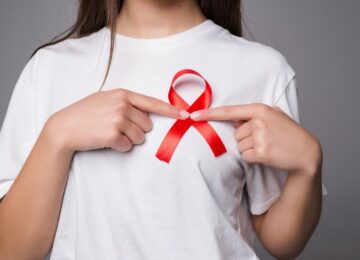

Oncology is usually got associated with the study, diagnosis and treatment of cancer around the world. A set of medical complications collectively known as cancer are defined by the unchecked division and proliferation of abnormal cells. Death may ensue if the spread is not stopped. Millions of people worldwide are provided with care and hope by the science and compassion that come together in the field of oncology.
What do we understand with Oncology ?
The word “oncology” is derived from the Greek words “ónkos,” which means mass, tumor, or bulk, and “-logy,” which means study. Physicians who specialize in treating cancer are known as oncologists. In accordance with the kind and stage of the patient’s cancer, they collaborate with a group of physicians and specialists to develop a personalized treatment plan.
Since cancer can strike any part of the body, oncology comprises a number of subspecialties, such as:
is the field that focuses on using hormone therapy, chemotherapy, and other drugs to treat cancer.
Involves performing surgery to remove the tumor and surrounding tissues.
High-energy radiation is used in radiation oncology to eradicate cancer cells and reduce tumor size.
Focuses on the diagnosis and management of pediatric cancer.
This field specializes in cancers of the reproductive system in women.
Handles blood cancers, including lymphoma and leukemia.
Who is Eligible to go for Oncology Services?
Anyone with a cancer diagnosis is eligible for oncology care. For the best results, early detection and treatment are essential. After receiving a referral from their primary care physician due to abnormal test results or after observing symptoms that could indicate cancer, such as:
- Unexpected weight loss
- Continuous exhaustion
- persistent discomfort in a particular body area
- changes in the appearance of the skin
- unusual enlargement or lumps
Benefits of Personalized Oncology Care
Personalized Treatment Plans: To ensure that the most effective treatment strategy is used, oncologists can customize treatment plans based on the type, stage, and health status of the patient.
Access to the Latest Treatments: Clinical trials are a common activity for oncology centers, providing patients with early access to novel treatments.
Multidisciplinary Care: Patients gain from having a group of experts, such as pathologists, surgeons, radiation oncologists, and nurses, collaborate to offer all-encompassing treatment.
Support Services: In order to assist patients and their families in overcoming the psychological, nutritional, physical, and social obstacles associated with cancer, oncology care provides access to these resources.
Current Research: As leaders in cancer research, oncologists are always looking for novel approaches to cancer treatment, detection, and prevention.
The Process of Oncology Treatment
Typically, there are multiple steps in the oncology treatment process:
Diagnosis: To identify the kind and stage of cancer, this may involve biopsies, laboratory testing, imaging tests, and physical examinations.
Treatment Planning: Taking into account the patient’s preferences as well as the type and stage of the cancer, the oncologist discusses with the patient the best course of action. Treatment options include immunotherapy, targeted therapy, radiation therapy, chemotherapy, and surgery, or a mix of these.
Aftercare: Regular follow-ups are required after treatment to oversee recovery, control side effects, and look for indications of cancer recurrence.
Tackling with Cancer issues
Receiving a cancer diagnosis can drastically change a patient’s life as well as their family. Beyond just providing medical care, oncology services also provide patients with psychological and emotional support to help them get through this difficult time. An important channel for expressing emotions and worries can be found in support groups, counseling, and therapy.
Preventive and Prompt Identification
Although the main focus of oncology is treatment, early detection and prevention are equally important aspects of cancer care. This involves teaching people about lifestyle decisions that could lower their risk of cancer, like:
- Maintaining a healthy weight and diet
- Frequent exercise
- Reducing the amount of alcohol consumed and avoiding tobacco
Additionally essential to the early detection of some cancers when they are most treatable are screening programs. Mammograms for breast cancer, colonoscopies for colorectal cancer, and Pap tests for cervical cancer are a few examples of these programs.
Oncology's Future
The field of oncology is always changing as a result of new discoveries and methods of treatment. Better understanding of the genetic causes of cancer is now possible thanks to developments in genomic medicine, which will enable more individualized and efficient treatment plans. Immunotherapy is another rapidly advancing field that uses the body’s immune system to combat cancer..
On the other side, the field of oncology is one of perseverance, hope, and constant innovation. In addition to treatments, it provides patients with a holistic approach to care that takes into account the psychological, emotional, and physical effects of cancer. The field of oncology promises even more effective treatments with fewer side effects in the future, enhancing patient quality of life and raising survival rates. This is due to ongoing research and advancements in the field. Oncology offers the knowledge, attention, and support required for anyone receiving a cancer diagnosis to successfully navigate the coming journey.


